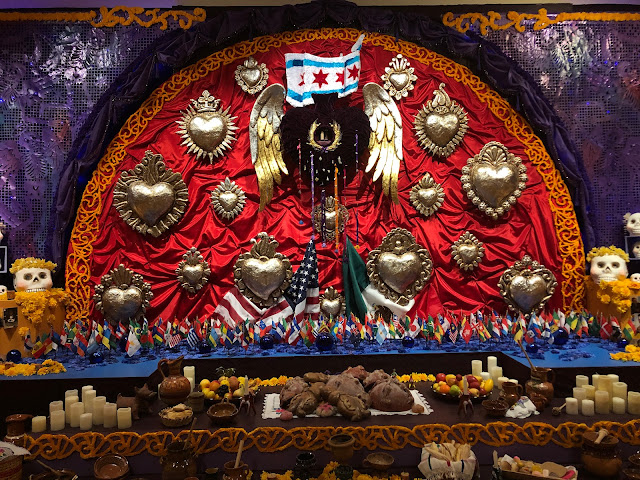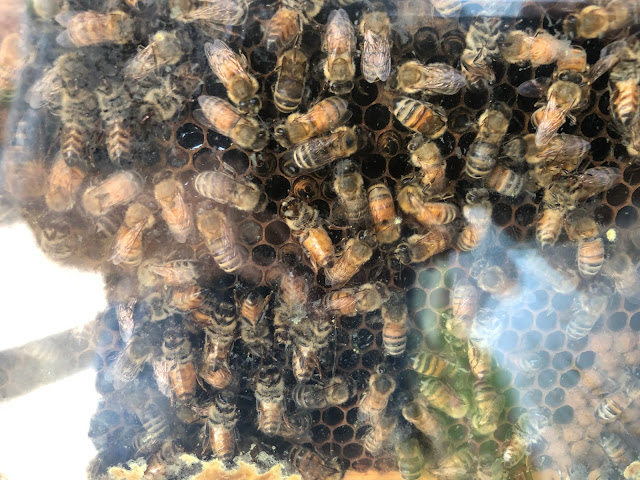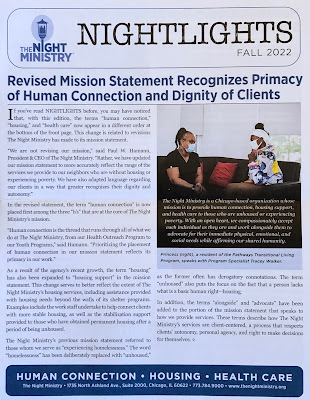 |
| Bee hives at the Chicago Botanic Garden |
"Oh no!" I said, surprised though not stricken, to learn of Queen Elizabeth II's death Thursday afternoon on Twitter. I immediately passed the news on — informing my wife, who was sitting a few feet from me. Since then I, no doubt like you, have been eagerly lapping at the endless ocean of reports and commentaries on the seismic shift, because that's what royalty does: give us something grand to think about, embroider our drab, work-a-daddy lives with regal purples and heraldic oranges. Like most, I imagine, I was pleased that Sad Sack Charles finally got his big promotion, and understood, if not entirely appreciated, those who used the moment to remind us what brutal imperialists the Brits used to be. Though it does seem bad form. I've gone to the funerals of people who had significant flaws, yet managed not to announce those flaws in a loud voice across the funeral parlor. But I understand the motivation. Someone used the queen's passing to tweet the opening sentence of Patrick Freyne's delicious analysis of royalty and celebrity on the occasion of Oprah's interview with Prince Harry and Meghan Markle last year. I admired its concision, metaphor and pacing and passed the lines along: Having a monarchy next door is a little like having a neighbour who’s really into clowns and has daubed their house with clown murals, displays clown dolls in each window and has an insatiable desire to hear about and discuss clown-related news stories. More specifically, for the Irish, it’s like having a neighbour who’s really into clowns and, also, your grandfather was murdered by a clown.
Prose like that reinforced my natural inclination to say nothing. I don't have a dog in this race, nor any particular insight to add. When I tried to ponder writing something, the first thought that came to mind — trying unsuccessfully to arrange tea with the Queen when I went to London to give a speech in 2009 — was not about her at all, but about me, my go-to inclination that I constantly battle. "Whereof one cannot speak, thereof one must be silent," Wittgenstein writes. Sound advice.
But my 48 hours of unusual reticence crumbled at a touch Saturday when I saw a brief report from Rolling Stone, of all places, headlined, with beautiful simplicity, "Queen Elizabeth II's Bees Have Been Informed of Her Death."
Normally, implausible news should be checked out, but this, by Daniel Kreps, has a purity, sweetness and veracity that immediately manifests itself in the opening lines: The hives of bees that reside within the gardens of Buckingham Palace have been informed of Queen Elizabeth II’s death.
In keeping with one of the stranger traditions connected to the British royal family, the palace’s official beekeeper broke the news of Her Majesty’s death at the age of 96 to the roughly 30,000 bees currently on the grounds, with the royal beekeeper also tying black ribbons around the hives in memory of Queen Elizabeth II.
I would stake my reputation on that being true. A thousand writers from the Onion working for a century couldn't approach that tone. And if it isn't true, well then I will happily, as Sherlock Holmes always threatened to do, retire to Sussex and keep bees.
I don't want to seize Kreps' work — click on the link, it's the best thing you'll read today — though to urge you toward it, I'll share the words that royal beekeeper John Chappie used to break the bad news:
"The mistress is dead, but don’t you go. Your master will be a good master to you."
Reading that gave me a mad impulse to again ask Mayor Lori Lightfoot to meet me at the hives which, for years, were on the roof atop City Hall. Then I remembered that, a) she always refuses, via her underlings and b) the hives have been removed, I was told when I was fact-checking the book, which of course has a few lines about Chicago beekeeping. As to whether the bees were exiled through Lightfoot's hostility toward bees — maybe she was stung once as a lass in Massillon and harbors grudges, her particular genius, or maybe as sentient creatures other than herself, they naturally draw her contempt. Or maybe she is completely indifferent to bees — that sounds right — and the hives were dismantled independent to her, as part of the general program of deterioration that grips the city.
Anyway, the queen is gone and Chicago hives are gone, I am told. In Britain, the bees now labor for King Charles III, and know it.











